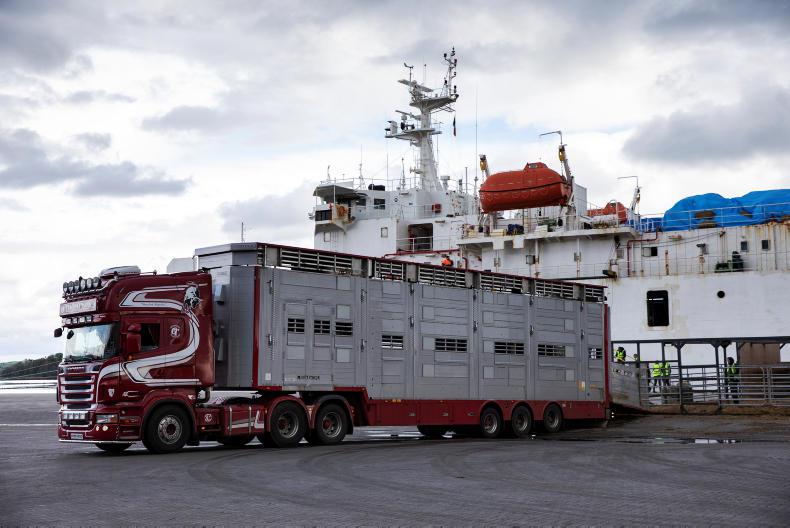Turkish authorities have decided to stop issuing new permits for imports of live feeder weight cattle, according to reports in the trade.
This will be unwelcome news for Irish exporters seeking to negotiate new orders with importers there.
However, although few other details are available, it is likely that existing permits issued by authorities will continue to be filled as normal.
It is likely that existing permits issued by authorities will continue to be filled as normal
It is possible that Irish exporters may supply part of any such contract, as done previously.
The main brake on trade will continue to be availability of finance and letters of credit for Turkish importers, and the lower price of cattle from South America.
The Turkish authorities control the issuing of new import permits to balance prices. If prices for finished cattle fall, Turkish farmers lobby for restrictions on live imports. However, if retail beef prices rise too high the authorities come under intense pressure to increase supply by allowing in more cattle.
Previous moves
The Turkish authorities last halted new permits in early January. However, large number of cattle continued to be imported through 2019 on existing permits, particularly from South America.
For Irish exporters, the latest development will further complicate the logistics of filling an order for cattle to Turkey as they are already dealing with a quarantine period.
Irish exports
Exports of young Irish bulls to Turkey are 5,715 head to date in 2019, with another boat being loaded this week.
Exports totalled 12,863 in 2018, some 31,188 head in 2017 and 19,234 in 2016, when the market opened for Irish cattle.
Read more
New rules to hit calf export lorries
Cattle boats loading for Libya and Turkey
Winter finishing: dust off the crystal ball again
BEEP weighing deadline extended
Turkish authorities have decided to stop issuing new permits for imports of live feeder weight cattle, according to reports in the trade.
This will be unwelcome news for Irish exporters seeking to negotiate new orders with importers there.
However, although few other details are available, it is likely that existing permits issued by authorities will continue to be filled as normal.
It is likely that existing permits issued by authorities will continue to be filled as normal
It is possible that Irish exporters may supply part of any such contract, as done previously.
The main brake on trade will continue to be availability of finance and letters of credit for Turkish importers, and the lower price of cattle from South America.
The Turkish authorities control the issuing of new import permits to balance prices. If prices for finished cattle fall, Turkish farmers lobby for restrictions on live imports. However, if retail beef prices rise too high the authorities come under intense pressure to increase supply by allowing in more cattle.
Previous moves
The Turkish authorities last halted new permits in early January. However, large number of cattle continued to be imported through 2019 on existing permits, particularly from South America.
For Irish exporters, the latest development will further complicate the logistics of filling an order for cattle to Turkey as they are already dealing with a quarantine period.
Irish exports
Exports of young Irish bulls to Turkey are 5,715 head to date in 2019, with another boat being loaded this week.
Exports totalled 12,863 in 2018, some 31,188 head in 2017 and 19,234 in 2016, when the market opened for Irish cattle.
Read more
New rules to hit calf export lorries
Cattle boats loading for Libya and Turkey
Winter finishing: dust off the crystal ball again
BEEP weighing deadline extended






 This is a subscriber-only article
This is a subscriber-only article










SHARING OPTIONS: